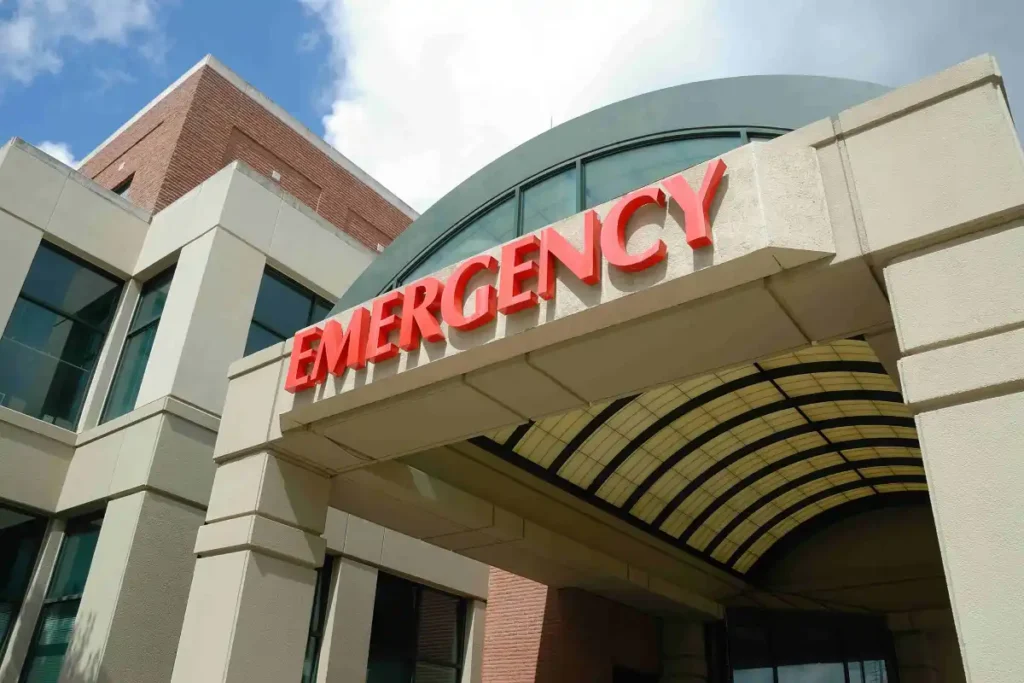When it comes to seeking medical attention, understanding the differences between after hours urgent care and emergency rooms (ER) can make a significant impact on both your health and wallet. This guide will go deeper, break down the pros and cons of each option, and guide you on which one is right for you.
Contents
Pros of After-Hours Urgent Care
Here’s when after hours care is a good option:
Cost-Effective
One of the most significant advantages of after-hours urgent care is its cost-effectiveness. Typically, visits to these facilities are much more affordable than those to an ER.
Many urgent care centers offer transparent pricing, allowing patients to know exactly what they’re paying for before they even walk in the door. This transparency helps reduce financial stress and allows individuals to budget their healthcare expenses better.
Quick Wait Times
Another pro of opting for after-hours urgent care is the shorter wait times compared to ERs. Since urgent care centers cater primarily to less severe conditions like minor injuries, broken bones, and minor illnesses, they often have streamlined processes that enable quicker service. Patients usually spend less time waiting around and more time receiving treatment, which is ideal for those who need prompt attention but don’t require emergency services.
Convenient Locations and Hours
After-hours urgent care centers are designed with convenience in mind. They’re often located in easily accessible areas and operate during extended hours, including weekends and evenings.
This makes them perfect for people with busy schedules or those who experience non-life-threatening symptoms outside regular business hours. You won’t have to worry about taking time off work or finding transportation during odd hours because these centers aim to fit into your life rather than disrupt it.
However, despite these benefits, after-hours urgent care isn’t without its drawbacks. For one, not all conditions can be treated at these facilities; if your issue requires specialized care or advanced diagnostic tools, you may still end up needing to visit the ER.
Additionally, while generally cheaper, certain procedures or tests might still come with hefty price tags depending on the center’s policies and your insurance coverage. If this still fits what you’re after, consider exploring the different Raleigh primary care providers or other urgent care locations near you.
By doing so, you can find a balance between cost, convenience, and quality of medical care that best suits your needs. Ultimately, understanding your options empowers you to make informed decisions for better health outcomes.
Pros of Emergency Rooms (ER)

The ER comes with its advantages:
Equipped for Serious Conditions
The ER stands out as the go-to place for handling critical illnesses and injuries. These departments are equipped with state-of-the-art technology and staffed by highly trained professionals capable of managing everything from heart attacks to traumatic injuries.
If you’re dealing with something potentially life-threatening, such as chest pain or difficulty breathing, heading straight to the ER ensures you receive the highest level of care possible.
Available 24/7
Unlike many other healthcare options, emergency rooms never close. This round-the-clock availability provides peace of mind knowing help is just a short drive away whenever necessary.
Immediate Attention Regardless of Severity
While after-hours urgent care prioritizes based on severity within reason, ERs prioritize solely according to urgency. Even if your condition turns out not to be dire once evaluated, simply being present guarantees you’ll get seen promptly under any circumstances.
Nevertheless, visiting the ER also comes with challenges. The costs associated with ER visits tend to far exceed those incurred through urgent care visits due partly to higher operational expenses required to maintain readiness for emergencies.
Moreover, unless your situation qualifies as genuinely emergent, long waits could become inevitable since resources focus first on stabilizing critically ill or injured individuals.
Which Is Right For You?
Deciding whether to head to after-hours urgent care or the ER largely depends on the nature of your ailment.
Choose after-hours urgent care if:
- Your symptoms aren’t immediately life-threatening. Examples include minor cuts requiring stitches, ear infections, sprains, or mild allergic reactions.
- You want to save money while still obtaining quality care tailored specifically toward common yet pressing health issues.
- You value speed and convenience over absolute comprehensiveness in diagnostics and treatment options.
Choose the ER if:
- There’s any doubt whatsoever concerning whether your condition constitutes an actual emergency. Symptoms like severe bleeding, sudden chest pains, difficulty breathing, or signs of stroke should send you directly here without hesitation.
- Access to cutting-edge technologies and expertise becomes crucial for diagnosing complex problems accurately.
- Time sensitivity demands immediate intervention regardless of cost considerations.
Remember, sometimes distinguishing between “urgent” and “emergency” isn’t clear cut. When unsure, erring on the side of caution and choosing the ER remains advisable until further information clarifies otherwise.
Conclusion
Both after-hours urgent care and ER have a role to play within the healthcare system, each serving distinct purposes best suited to particular needs. By understanding the strengths of each, you can navigate the healthcare system more confidently, ensuring you receive the right care at the right time.

